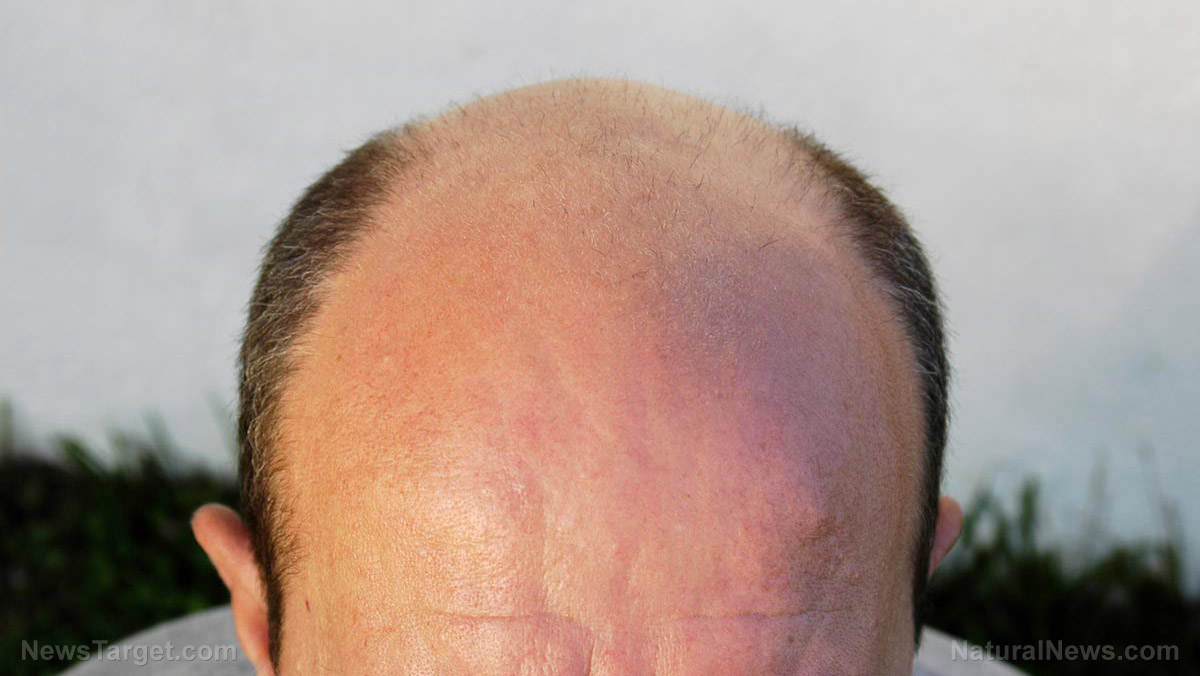Food is Medicine: Fruits and vegetables are the key to preventing and treating diseases, health experts say
09/26/2022 / By Zoey Sky

Following a healthy diet is crucial for maintaining your overall wellness, but healthy food isn’t always accessible for some people.
To address this issue, some experts suggest that diet can be prescribed in the same way as medication, “as a prescriptive intervention, [subsidized] by government, readily available and with plenty of support and information, to help prevent or treat diseases.”
The idea of “food as medicine” is becoming more popular worldwide as scientists and doctors think of ways to use food in a targeted fashion to improve public health.
Balanced diet is key to overall health
A woman named Emma was diagnosed with Type 2 diabetes. She said her condition constantly nags at her, from morning until night.
Having Type 2 diabetes means Emma needs to carefully choose everything she eats, from snacks to meals to maintain her blood sugar levels. Not paying attention to her food means Emma’s blood sugar levels could spike, which could cause her to pass out or worse.
Someone with Type 2 diabetes should follow a balanced diet that includes lots of fresh fruit and vegetables, nuts and seeds, whole grains, lean meat and fish and reduced-fat dairy. According to studies, this diet can help slow down or even reverse the progression of Type 2 diabetes. This diet can also help prevent it from happening in the first place.
However, a diet like this isn’t always accessible for Emma.
According to Professor Jason Wu, a public health researcher from the University of New South Wales (UNSW), healthy food isn’t just important for people with diabetes. Wu, who is also head of the nutrition science program at the George Institute for Global Health in Sydney, said many of the “top killers” in western societies, from diabetes to cardiovascular disease and certain types of cancer, are often linked to lifestyle.
Diet is often “one of the major causes” of these diseases, added Wu. Even decades of campaigns on healthy eating have failed to make a significant dent in Australia’s worsening rates of obesity and Type 2 diabetes.
According to Wu and other health experts, major hurdles that prevent the success of such campaigns include systemic barriers, such as availability, accessibility, cost and education. Even public health messaging advocating for healthy diets has been often ineffective when it comes to these problematic barriers.
Food as medicine for disease prevention
Advocates think that “better targeted, supported and funded prescriptive approaches” would be more effective, which is where the idea of food as medicine comes in.
Wu and his colleagues recently conducted a study involving 50 volunteers with Type 2 diabetes who were having trouble affording enough food. The group was “prescribed” a free box of food that was delivered to their homes every week.
The box included items like:
- Dairy
- Fresh fruit
- Lean meats
- Vegetables
- Whole grains
The volunteers also had regular access to a dietician. Additionally, they were given recipes and advice on how to prepare healthy food using the ingredients from the box.
Emma was one of the study participants, and she talked about how it included items she hadn’t eaten in a long time or things that she “didn’t think were an option.” Thanks to the box of healthy food, instead of having a burger for breakfast, she started eating fruit.
When Emma craved chips, she enjoyed some nuts and seeds. (Related: Study: Consuming apples, oranges and strawberries can help people with Parkinson’s disease live longer.)
The study lasted only three months, but within that time the “produce prescriptions” made a big improvement in diet quality and food security of all the volunteers. The study also had unexpected benefits as the volunteers showed improvements in their cholesterol levels. They also lost weight and ate less unhealthy food.
Other recommended foods for people with diabetes include:
- Apple cider vinegar and vinegar
- Avocados
- Beans
- Broccoli
- Chia seeds
- Eggs
- Extra-virgin olive oil
- Fatty fish
- Flaxseeds
- Garlic
- Greek yogurt
- Leafy greens
- Nuts
- Shirataki noodles
- Squash
- Strawberries
Food prescriptions should be affordable for everyone
Wu wants to see food as medicine become an “intrinsic part of healthcare, in prevention and treatment of disease.”
He acknowledged that eating fruits and vegetables isn’t a silver bullet for someone who already has a terminal illness, but studies have shown that food can help improve overall health and has a role in disease prevention. Wu explained that food is used as medicine “because healthcare needs to shift.”
Within healthcare itself, healthy food and healthy physical activity don’t get enough attention. Wu is advocating for food prescriptions to become subsidized and accessible like pharmaceutical prescriptions.
Every year, billions of dollars are spent on medications or paying for surgeries that are “essentially downstream consequences of unhealthy diets,” said Wu. He thinks that some of those healthcare dollars should be diverted to pay for or subsidize evidence-based healthy foods for patients with lifestyle-related diseases, especially people who are already experiencing food insecurity.
Aside from prevention, research suggests food prescriptions can be used for people already affected by a disease.
To illustrate, a recent study from the University of Newcastle showed that consuming a handful of almonds daily helped relieve constipation in those with kidney disease undergoing the blood-filtering process hemodialysis.
Clare Collins, a nutrition and dietetics professor at the University of Newcastle, wants to see nutrition managed care plans that give individuals access to dieticians and nutritionists who can help overcome some of the barriers to healthy eating, such as not being unable to properly prepare healthy food, not having the right appliances at home and not having access or the means to buy healthy food.
Since the UNSW study ended, Emma has been missing it because something as simple as a head of lettuce became unaffordable again. She added that she missed the basic things from the prescription box, such as broccoli and cauliflower.
The weekly deliveries from the study helped Emma manage her diabetes and also improved her insomnia. But after the study concluded, Emma reverted to cheaper snacks even though they are unhealthy.
While healthy food is often inaccessible again for Emma, she said that the study was truly helpful for someone like her who has diabetes.
Visit FoodIsMedicine.com for more articles on the many health benefits of a balanced diet.
Watch the video below to find out how garlic and lemon juice can help reduce cholesterol and lower blood pressure.
This video is from the Natural News channel on Brighteon.com.
More related stories:
4 Health benefits of cinnamon, a powerful spice that can help reduce blood sugar levels.
Dr. Bryan Ardis talks with Dr. Mark Sherwood about obesity, diabetes and COVID – Brighteon.TV.
Consume foods rich in omega-3s to support brain and heart health.
Sources include:
Submit a correction >>
Tagged Under:
alternative medicine, diabetes, food cures, food is medicine, food science, natural cures, natural medicine, prescriptive intervention, prevention, research, Type 2 Diabetes, vegetables
This article may contain statements that reflect the opinion of the author
RECENT NEWS & ARTICLES
COPYRIGHT © 2017 NATURAL CURES NEWS



















